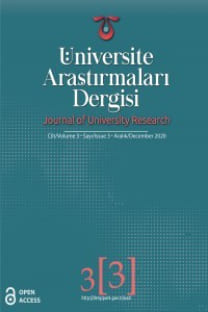Spor ve Mantık İlişkisi
Spor ve mantık, bedeni ve zihni disipline eden ve düzenli olarak tatbik edildiğinde her ikisinin de sağlıklı çalışmasına imkan veren kurallardan ibarettir. Adeta bedeni olumlayan bir düşünme biçimiyle spor eğitimi, insanın bilgeliğini kazanmasını sağlayan bilgiler bütününden oluşur. Buna karşılık mantık ise zihnin doğru düşünmesinin garantisini veren kurallardan teşekkül eder. Antik Yunan’da Platon ve Aristoteles, spor ve mantığın insan bedeni ve zihni üzerindeki önemi ve değeriyle ilgili olarak görüş açıklayan ilk filozoflardır. Platon, çocuklara ve gençlere fiziksel hareketlerin öğretilerek bedenlerin güçlü, sağlıklı ve estetik bakımdan güzel olmalarını önermektedir. Buna karşılık Aristoteles, mantık biliminin kurucusu olarak zihinlerin doğru ve ölçülü düşünebilmesinin yolunu inşa eder. Buna göre kurallarına uyularak tatbik edildiğinde mantık, zihnin hataya düşmesini engelleyen alet ilmidir. Öte yandan spor, insan bedeni için faydalı olan fiziksel hareketlerin nasıl yapılması gerektiğini açıklayan ve böylece bedenin ölçülü ve dengeli bir yapıya sahip olmasını sağlayan bilimdir. Yani zihnin sağlıklı işleyişinin ölçütü mantık ise sağlıklı bedenin ölçütü de spordur. Farklı kategorilerde olmakla birlikte birer değer olmaları bakımından beden ve zihin, düşünen/konuşan canlı (hayavanü’n-natık) şeklinde tanımladığımız insanı oluşturan temel yapıdırlar. Spor ve mantık ise bu temel yapının formudurlar. Bu araştırmada öncelikle sporun ne’liğini sorunsallaştırarak mantıksal tahlillerle onun mahiyetini açığa çıkartmayı deneyeceğiz. Daha sonra mantığın ne’liği üzerinde duracağız. Mantıksal düşünme, eleştirel düşünme, yaratıcı düşünme, sezgisel düşünme vb. düşünme çeşitleriyle bağlantılı olarak spor ve mantık arasındaki ilişkiyi tartışmaya çalışacağız.
Relationship between Sport and Logic
Sport and logic consist of the rules that discipline the body and mind and allow for both to work properly when applied regularly. In fact, with a way of thinking that accepts the body, sport education is a set of information that enables man to gain his wisdom. On the other hand, logic consists of rules that guarantee the right thinking of the mind. In Ancient Greece, Plato and Aristotle were the first philosophers to express their views on the importance and value of sport and logic on the human body and mind. Plato focuses on teaching physical training to children and young people, to make them strong, healthy and aesthetically beautiful. At the same time Aristotle, the founder of the science of logic, builds the way for minds for restrained and correct thinking. When applied according to these rules, logic is the tool that prevents the mind from falling into error. On the other hand, sport is a movement which consists of movements which are beneficial for human body and provides a measured and balanced structure of the body. That is, if the criterion for functioning of the mind is logic, then sport is the measure for functioning of the body. In terms of being values, the body and the mind are the basic structures that make up the human being defined as the thinking / speaking animal. Sports and logic are the form of this basic structure. In this research, firstly we will try to reveal the nature of the sport and investigate it with logical analyzes. Then we will focus on the essence of logic. Finally, we will discuss the relationship between sport and logic relative to the kinds of thinking such as logical thinking, critical thinking, creative thinking, intuitive thinking etc.
___
- Aristoteles, Politika, Çeviren: Mete Tunçay, Remzi Kitabevi, 6. Baskı, İstanbul, 2002.
- Aristoteles, Nikomakhos’a Etik, Çeviren: Furkan Akderin, Say Yayınları, I. Baskı, İstanbul, 2014.
- Aristotle, Analytica Priora, (The Basic Works of Aristotle içinde), ed. Richard McKeon, Modern Library Paperback Edition, 2001.
- Aristotle, Rhetoric, (The Basic Works of Aristotle içinde), ed. Richard McKeon, Modern Library Paperback Edition, 2001.
- Cook, Roy T. A Dictionary of Philosophical Logic, Edinburgh University Press, 2009.
- Erdemli, Attila, Temel Sorunlarıyla Spor Felsefesi, E Yayınları, III. Basım, İstanbul, 2016.
- Güçlü, A. Baki, Erkan Uzun, Serkan Uzun, Ü. Hüsrev Yolsal, “Eleştiricilik Maddesi”, Felsefe Sözlüğü, Bilim ve Sanat Yayınları, Ankara, 2002.
- Jennings, R.E., N. A. Friedrich, Proof and Consequence An Introduction to Classical Logic, Broadview Press, Peterborough, 2006.
- Mcbride, Ron E., “Critical Thinking-An Overview With Implications For Physical Education”, Journal On Teaching In Physical Education, 1991, 11, (112-125).
- Öner, Necati, Bilginin Serüveni, Vadi Yayınları, 2. Basım, Ankara, 2008,
- Özerbaş, Mehmet Arif, “Yaratıcı Düşünme Öğrenme Ortamının Akademik Başarı ve Bilgilerin Kalıcılığa Etkisi”, GÜ Gazi Eğitim Fakültesi Dergisi, c. 31, S. 3, 2011, (675-705).
- PISK, Jernej, “What is Good Sport? Plato’s View?”, Acta Univ. Palacki., Gymn., 2006, vol. 36.
- Platon, Devlet, Çeviren: Sabahattin Eyüboğlu, M.Ali Cimcoz, İş Bankası Yayınları, İstanbul, 1999.
- Plato, Second Alcibiades, (Complete Works içinde), ed. John M. Cooper, Hackett Publishing Company, USA, 1997.
- Plato, Rival Lovers, (Complete Works içinde), ed. John M. Cooper, Hackett Publishing Company, USA, 1997.
- Plato, Alcibiades, Complete Works içinde), ed. John M. Cooper, Hackett Publishing Company, USA, 1997.
- Plato, Crito, Complete Works içinde), ed. John M. Cooper, Hackett Publishing Company, USA, 1997.
- Reeve, C. D.C., Action, Contemplation and Happiness, Harvard University Press, London, 2012.
- Roumbou, Stravroula, “Aristotle’s Concept of Mental Imagery in Sports”, Psychological Though, PsychOpen Publishing Psychology, 2017.
- Saçlı, Fatma-Gıyasettin Demirhan, “Beden Eğitimi ve Spor Öğretmenliği Programında Öğrenim Gören Öğrencilerin Eleştirel Düşünme Düzeylerinin Saptanması ve Karşılaştırılması”, Spor Bilimler Dergisi Hacettepe J. Of Sport Sciences, 19 (2), 2008, (92-110).
- Sullivan, Scott M., An Introduction to Traditional Logic, Booksurge Publishing, USA, 2005.
- Tekin, Ali, Gülcan Tekin, “Antik Yunan Dönemi: Spor ve Antik Olimpiyatlar Oyunu”, Tarih Okulu Dergisi, Yıl: 7, Sayı: XVIII, Haziran 2014, (ss. 121-140).
- Türkçe Sözlük, TDKY, 11. Baskı, Ankara, 2011.
- Ural, Şafak, “Diyalektik Düşünce ve Mantık”, Felsefe Arkivi, S. 28, İstanbul, 1991.
- Başlangıç: 2018
- Yayıncı: Durmuş GÜNAY
